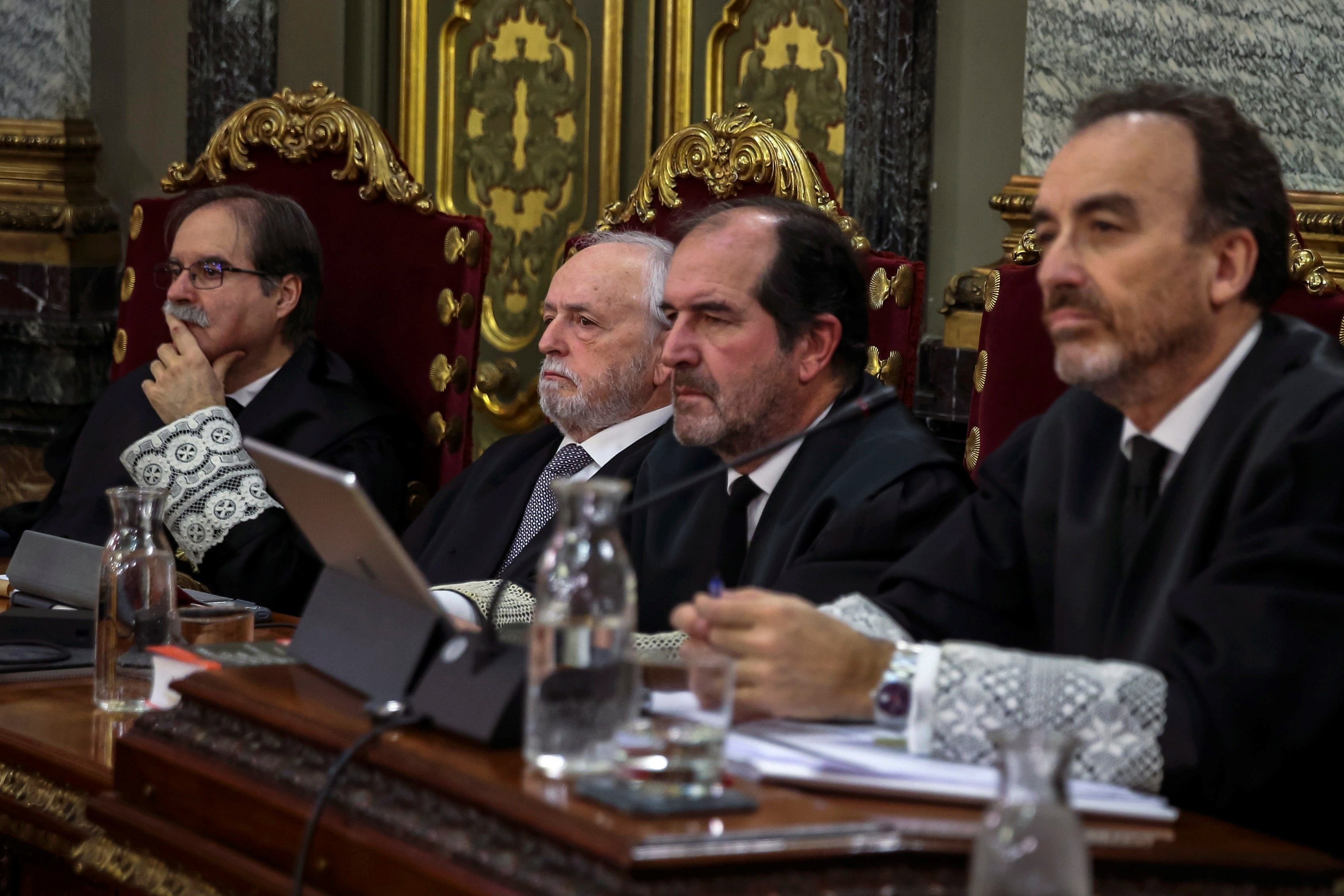The veto from the presiding judge in the Catalan independence trial, Manuel Marchena, to showing videos during the questioning of witnesses puts at risk "the principle of challenges and the right to defence", according to observers from the specially-formed body International Trial Watch. In their evaluation of the sixth week of the trial, they warn that not being able to compare witnesses' testimony with video evidence in real time has had an effect on the process. Last week, the observers in attendance were the Argentinian Ernesto Moreau, second vice-chair of the American Association of Jurists, and Alejandro Forero, assistant lecturer of Criminal Law and Criminology at the University of Barcelona.
As in previous weeks, they criticise the presiding judge for "preventing challenging witnesses with the resources of video images or the showing of investigation documentation". They warn this could violate article 6.3.d of the European Convention on Human Rights, which establishes defendants' right to question witnesses. "Allowing the immediacy of challenges would enable the possibility of detecting possible cases of false testimony as, for example, the defences seemed to warn," they write.
The observers also note Marchena's block towards "allowing the party which may not have proposed a witness to ask them [questions] beyond [the topics] asked by the proposing party". This limit, they argue, "can be to the detriment of the principle of equality of arms, which could turn during the proceedings into a cause of material lack of defence".
The jurists also have criticisms for the attitude of public prosecutors. They express their "concern" over the treatment of the exercising of fundamental rights, like that of demonstration, and the "criminalisation of ideological aspects". Prosecutors "insinuate that gathering and shouting, singing or showing disapproval for police actions could now be evidence for sedition". That, they warn, "can have consequences beyond the trial", for example acting as a "chilling effect" on the right to protest.
Along the same lines, the observers express regret that prosecutors "have again made questions which could be suggestive and/or leading". They give as an example questions to various Civil Guard agents whose language, they suggest, inferred the certainty of violence which remains to be demonstrated in the evidence phase.
Other concerns for the jurists are that the investigation of the same events by three courts means that some witnesses have asserted their right to not testify and thus haven't been able to defend themselves for inferences made in this case, that the very long days in court limit the parties' ability to prepare for the trial and that the lack of a complete calendar for the trial also "limits the possibilities for deploying a defence strategy".

